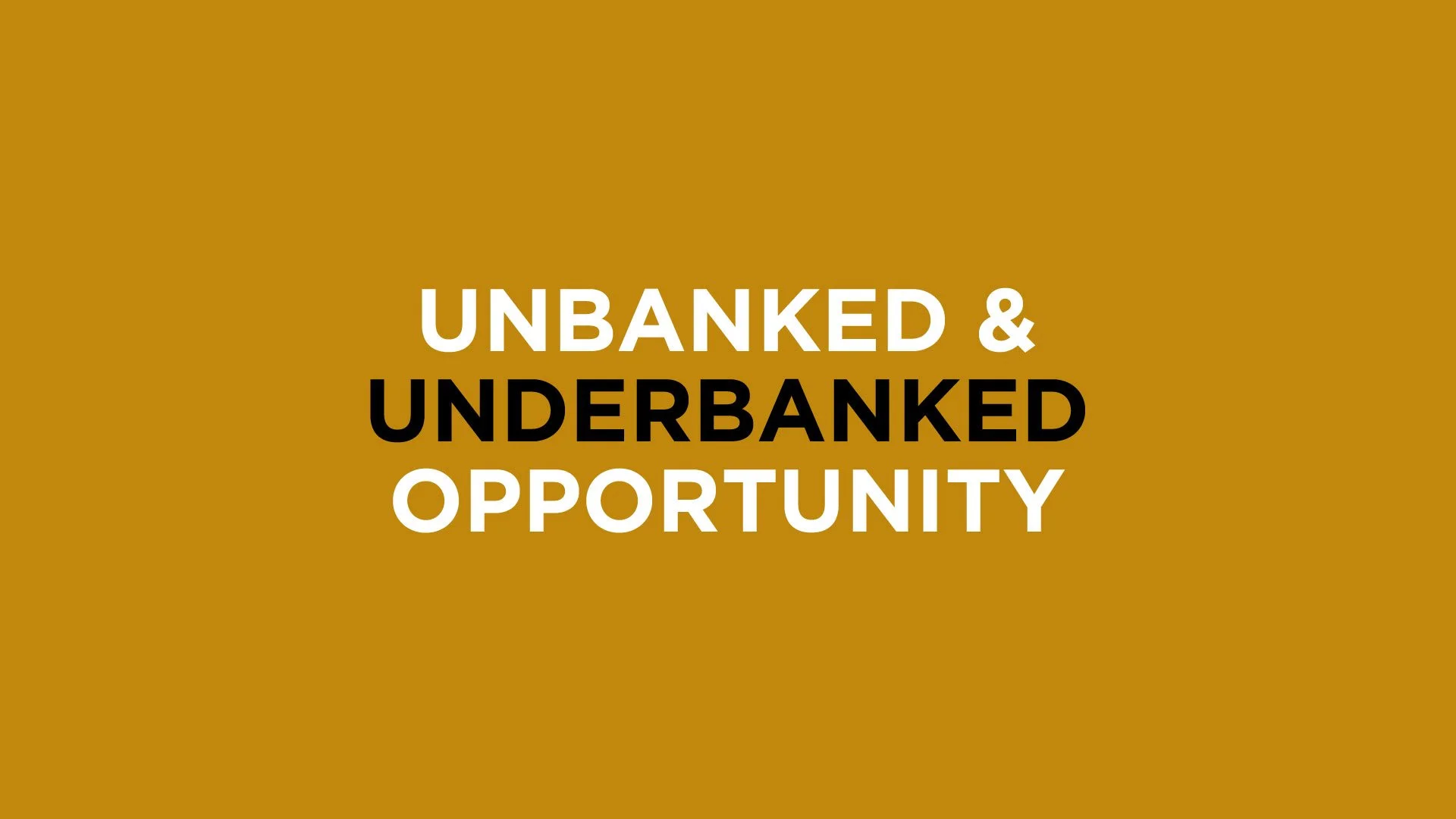Unbanked and underbanked: an opportunity for credit unions to build memberships and retention
Research underscores the importance of dismantling barriers to financial services and literacy when building financial inclusion and wellbeing.
Checking your bank balance should feel like a daily routine, but this is not the case for millions of Americans that are financially excluded and underserved.
According to a Morning Consult survey of 4,400 U.S. adults,
Ten percent of U.S. adults are unbanked – lacking either a checking or savings account.
Nearly 1 in 4 U.S. adults are underbanked – people with a checking or savings account, but also use financial service alternatives, such as payday loans and check cashing services.
Unbanked and underbanked adults in the U.S. are younger, poorer and less likely to identify as white, when compared to fully banked individuals.
The majority of unbanked and underbanked adults cite creating an emergency fund as an important financial goal to them.
Totalled, the number of unbanked and underbanked represents 34% of U.S. adults or 87 million people. For context, 87 million is approximately 67% of U.S. credit union membership total of 129 million. That’s 17,000 new members for each of the 4,942 credit unions in the United States.
For credit unions, this is a significant opportunity – one that enables an expansion of financial access, wellbeing and inclusion mandates. And many credit unions are already responding. Free accounts, such as SchoolsFirst's Free Checking in California have become ubiquitous.
New Orleans’ Firemen’s Federal Credit Union and local community groups established The Faith Fund – an organization aiming to help individuals and families escape predatory payday lenders.
Minnesota’s Affinity Plus Federal Credit Union and partners have launched Dora Financial – the nation’s first digital banking co-op for unbanked and underbanked Americans.
Michigan’s One Detroit Credit Union's First Time Auto Loan and Refi My Ride Loan help members avoid or decouple from auto dealership lending with lower borrowing rates and easier qualification.
Ultimately, however, improving access to affordable financial services, while important, may not be enough to help many members navigate their financial life adequately enough to ensure they meet their financial goals.
Particularly in contrast to national financial literacy data from GFLEC – showing that many Americans function with a poor level of financial literacy – and experience equally poor effects to their financial wellbeing. And how improving financial literacy can improve financial outcomes.
At Currency Marketing, we specialize in financial education. Our It’s a Money Thing program is utilized by more than 100 credit unions. Members and teachers alike love its educational and fun content and credit unions respect it for its member and community benefits.
We cover the financial topics Americans refer to in many surveys. Our Emergency Fund Boot Camp topic is a very good example of how we’re responding, and one of the most requested by credit union members.
Please reach out if you’d like to know more. I’d love to show you how It’s a Money Thing will add value to your credit union and your membership.
Tim McAlpine is the CEO of Currency Marketing. He is best known for developing the It's a Money Thing Financial Education Program that credit unions from around North America are using to connect with new young adult members. He is also a driving force behind CUES Emerge, an emerging leader program that combines online learning, peer collaboration and an exciting competition component.








